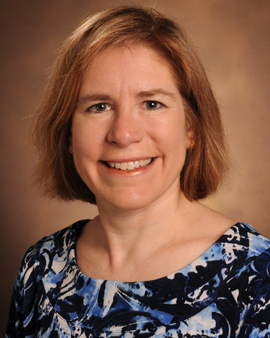
Beth Malow, MD, MS, ELAM '15
May 6, 2019
When you hear the words “civil discourse,” what comes to mind? You may envision a room of politically charged individuals debating gun safety versus gun rights, immigration or other contentious issues. Sounds stressful, doesn’t it? Why would anyone want to engage in something like that? And what could possibly be the connection to leadership in academic medicine?
After the election of 2016, I sought out groups where I could participate in civil discourse. My motivation was simple—I needed a positive outlook on where our country was going that the media, whether it be newspapers, radio broadcasts, or my Facebook or Twitter feed, was not able to provide. Listening to news stories on immigration seemed to be putting up walls (pun intended) rather than bringing us together. After participating in several meetings focused on civil discourse, and coming away energized from these sessions, to my surprise I found myself co-moderating Common Ground Nashville in January 2018. One and a half years later, I remain energized as we experiment with novel ways to organize our sessions and attract diverse members. Our format is simple—we gather over dinner, have introductory comments and occasionally guest speakers, and then divide into smaller breakout groups to discuss a topic before coming back together to share areas of common ground.
Through our meetings, I have learned to embrace the “ground rules” that keep our meetings civil—being non-judgmental, embracing wonder and curiosity, asking lots of questions, and welcoming others whose political views are different than our own. The story of a woman growing up in a rural area of our state—where knowledge of how to use a firearm protected her and her younger sisters—did not change my position on gun safety. However, the story allowed me to articulate my views in a less argumentative and more compelling fashion and see the perspective of others. The core principles of Common Ground Nashville are that ideas are strengthened when they are challenged and that the best ideas are generated from a pool by diverse contributors. Rather than contributing to stress, a Common Ground Nashville session alleviates tensions and promotes hope. One realizes that we can get along with those with whom we disagree and learn a great deal in the process!
But what does civil discourse mean for leadership in academic medicine? Well, the same ground rules and core principles make us better physicians, scientists, and leaders. For example, when I really listen to a family member’s story of trying to navigate bedtime routines for a grandchild cared for in multiple homes on different nights, or I work together with a patient to develop an effective treatment plan (without judging her for lack of compliance), I feel grateful for being able to apply common ground principles to a profession that takes me outside of my “bubble” to interact with people from all walks of life. I can convince a mom to vaccinate her younger child when her older child has autism and she fears the risk involved. I can help colleagues work out their differences related to opioid prescribing in sleep disorders such as restless legs syndrome. Through the practice of non-judgmental listening, coupled with sharing one’s perspective from a position of quiet strength in responding to others, I have witnessed colleagues transcend challenging situations and replace fear with hope and compassion.
How do you get started finding a civil discourse group? You might do a web search on civil discourse and your city or town. You might explore Better Angels or Living Room Conversations, which are national groups focused on promoting conversations across the political divide. You may want to check out this NPR podcast on a variety of groups. Or you may want to start your own group at your medical center. As Margaret Mead said, “Never doubt that a small group of thoughtful, committed citizens can change the world; indeed, it's the only thing that ever has.”
Beth Malow, MD, MS, ELAM '15
Vanderbilt University Medical Center